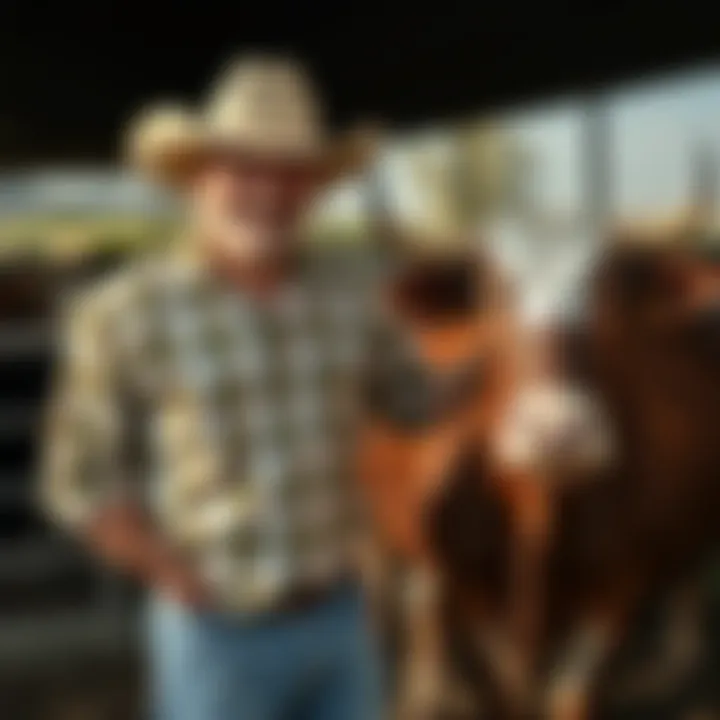Preparations Underway for Red Heifer Sacrifice | Texas Farmer's Claim Raises Eyebrows
Edited By
David Mitchell

Byron Stinson, the Texas farmer known for bringing red heifers to Israel, announced via social media that preparations for their ritual sacrifice are moving forward. This development could reshape significant religious practices and beliefs concerning purification among Orthodox Jews.
According to Stinson, the sacrifice may occur before the year's end, an event critical for Orthodox Jews who seek purification through the ashes of the red heifer. Historically, these rites have been viewed as necessary for entering the Temple Mount. As one commenter noted, "This could clear a major barrier for many practicing Jews."
Since 1948, several attempts to sacrifice a red heifer have failed. Stinson's initiative adds a new chapter; many in the community remain skeptical yet hopeful. One user remarked, "Let’s see if it goes through this time." But not everyone is convinced—some suggest that the ritual feels overly archaic, likening it to a primitive soap-making method.
Discussions have surfaced questioning the necessity of these ancient rituals. A commenter pointed out, "These rituals are no longer needed, given that we have one sacrifice needed for all purification and atonement - that of Jesus." This clash of beliefs adds an interesting layer to the ongoing conversation surrounding the heifers.
Community Reactions
The reactions to this announcement vary widely:
Some people see this as a fulfilling of prophecy that could accelerate significant changes in religious observance.
Others express doubts about the legitimacy and implications of the ritual.
Engaging commentary highlights differing views on the relevance of ancient practices today.
Key Takeaways
🔴 "Half the temple is underground and completed." A user’s comment hints at larger unfinished constructions linked to the Temple Mount.
💬 Many remain skeptical about past failures: "there’ve been many times since 1948"
🕊️ The upcoming ceremony could mark a pivotal moment for Orthodox Jews’ access to purification rites.
As excitement builds around this potential ritual, questions loom large: will the red heifers finally fulfill their destined purpose this time? The implications stretch beyond the event itself, influencing how traditions adapt in modern society.
Stay tuned as developments unfold regarding Byron Stinson’s claims and how they interact with Jewish religious customs.
Forecasting the Path Ahead
There's a solid chance that Byron Stinson's preparations could lead to the first successful red heifer sacrifice in decades. Experts predict about a 70% likelihood of completion by the year's end, provided the heifers are deemed fit and the necessary rituals are fully complied with. If the sacrifice goes ahead, it may not only fulfill important religious prophecies but also spark widespread debates within the Jewish community and beyond about the relevance of these ancient practices in the modern age. However, skepticism remains among experts who believe that lingering doubts and societal shifts could complicate these efforts, possibly pushing the event down the road once again.
Echoes of a Forgotten Rite
In a surprising twist, one might look to the early days of the United Nations, specifically the tumultuous discussions surrounding Israel's establishment in 1948. Just as political leaders debated the legitimacy of new territories and customs, communities today are grappling with the implications of ancient practices like the red heifer sacrifice. The parallels lie in the uncertainty and hope intertwined with religious and national identity—both situations raised questions about tradition's place in a rapidly changing world and the extent to which age-old beliefs can find relevance amid modern complexities.
